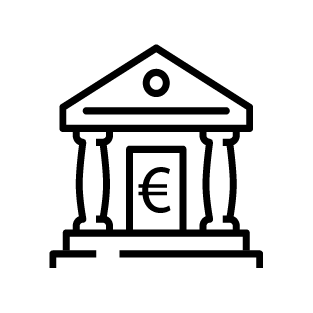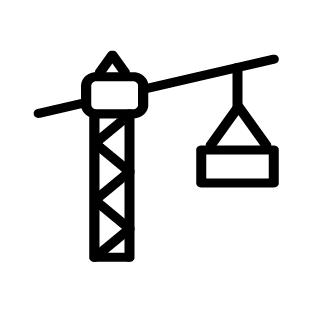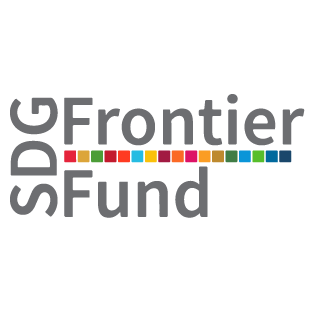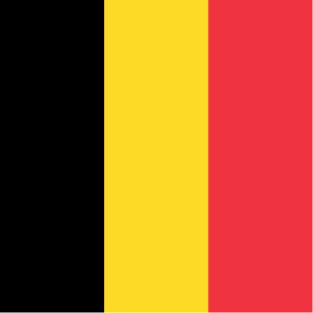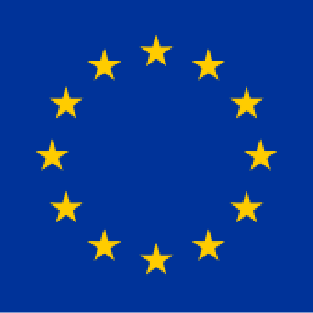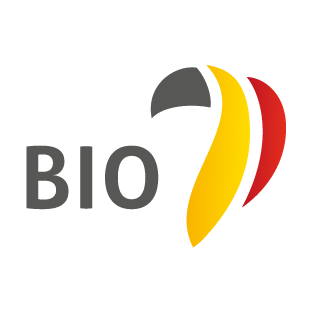Annual report
Print the report
Click on the button to print the report. If you want to save as PDF, select this option in the Print dialog box.
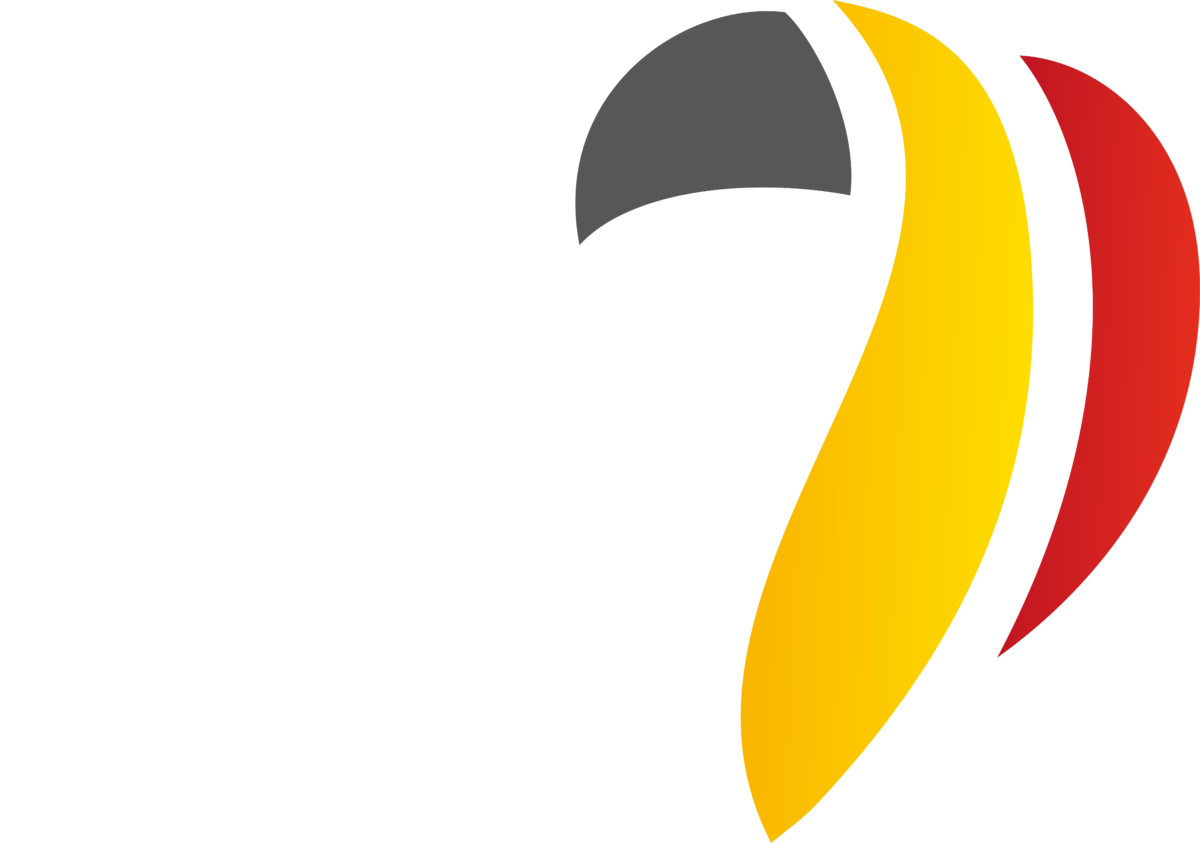
Annual report
Navigating a Changing World
2024 was a year of profound global disruption — from deepening geopolitical tensions to accelerating climate challenges. In this fragmented world, BIO stayed true to its mission while evolving to meet the moment. With a renewed strategic framework, stronger focus on impact, and an emphasis on the most vulnerable regions, we made purposeful progress where it matters most. Our investments, partnerships, and policies reflect a clear commitment: to build resilient private sectors that drive inclusive, sustainable development — even in the face of uncertainty.
In this rapidly changing world, it’s clear that Belgian foreign policy and international cooperation must adapt to be able to meet these new challenges.

With its targeted investments in Africa, climate action, and the reconstruction of Ukraine, BIO contributes in a concrete and strategic way to the implementation of Belgian foreign policy. Its role as an impact investor reflects our commitment to sustainable development, international solidarity, and European stability.
Maxime Prévot, Deputy Prime Minister and Minister of Foreign Affairs, European Affairs and Development Cooperation
In this context, BIO’s role is more crucial than ever. Our new management contract for 2024–2028 sets out a more strategic and results-driven approach to development investments. While our mission remains the same - promoting sustainable development in developing countries by supporting the private sector - our focus is becoming more targeted. We’re placing greater emphasis on specific regions (especially Africa), key sectors (with a strong focus on climate), and cross-cutting themes such as decent work and human rights. Importantly, the new contract also reinforces BIO’s mandate to invest in least developed countries, and adds an emphasis on countries with fragile and conflict-affected situations (FCAS). This was later amended to also cover Ukraine, where BIO can support the country’s reconstruction and resilience in the face of ongoing conflict.

Belgium has consistently stood with Ukraine, and BIO is committed to playing its part. We are actively developing impact investment opportunities in the Ukrainian private sector, including financial institutions, renewable energy, private equity, and agriculture.
Joris Totté, CEO
At the heart of the changes in the new management contract is the introduction of a Strategic Impact Framework, which sets out clear and measurable development goals. Alongside this, BIO has updated several key policies, including our evaluation strategy, gender policy, climate strategy, and theory of change. We’ve also formalised our human rights approach in a comprehensive new policy and begun implementing the Corporate Sustainability Reporting Directive (CSRD).
2024 highlights
- New management contract
- New CEO & CCO
- Updated Theory of Change, a new Strategic Impact Framework and associated 10 Strategic Impact Targets
- New Human Rights Policy, Updated Gender Policy, updated Climate Strategy
- 22 investments & 19 BDSF projects approved for EUR 217 M and EUR 1.26 M
- 18 investments signed for EUR 214 M
This annual report highlights how BIO, in this challenging context, continues to fulfil its commitment to sustainable development, with a focus on impact, collaboration, and responsibility.

Our ultimate goal is to help countries build dynamic private sectors that convert growth into local jobs — not by shifting work from developed countries, but by unlocking opportunity where people already live. That means strengthening sectors like energy, infrastructure, agribusiness, healthcare, tourism and manufacturing in mineral-rich nations to fuel a more vibrant, homegrown economy.
2024 in numbers

In the same period, BIO approved 19 new projects for the Business Development Support Fund, for a total of EUR 1.26 M.


BIO has invested EUR 10 M in equity in the AfricInvest SME Fund, a private equity fund that will support fast-growing SMEs in North and sub-Saharan Africa.

BIO has granted a USD 15 M loan to the Renewable Energy Performance Platform 2, a 20-year close ended debt fund focused on renewable energy.

BIO has committed USD 10 M in equity in the African Rivers Fund IV (ARF IV), a sector-agnostic investment fund focused on SMEs located mainly in the Democratic Republic of Congo, Uganda, Angola and Zambia.

BIO has invested USD 15 M in equity in the Navis Asia Credit Fund, a generalist private credit fund to be invested in Southeast Asia.

BIO has granted a USD 20 M loan to Banco Guayaquil, an Ecuadorian universal bank.

BIO has granted a USD 1.5 M loan to BRAC Sierra Leone, an international microfinance organisation active in Sierra Leone.

BIO has granted a USD 8.4 M loan to BRAC Tanzania, an international microfinance organisation active in Tanzania.

BIO has granted a USD 1.5 M loan to BRAC Liberia, an international microfinance organisation active in Liberia.

BIO has granted a USD 2.2 M loan to BRAC Uganda, an international microfinance organisation active in Uganda.
BIO has granted a USD 9 M loan to Vivero Los Viñedos, a Peruvian plant nursery business

BIO has granted a USD 9M loan to candi solar, a company installing, owning and operating solar production plants and selling electricity to clients in India and South Africa.

BIO has granted a USD 12 M loan to Achwa 1, a 42 MW run-of-river hydropower plant in Uganda.

BIO has granted a USD 20 M loan to Access Bank Plc, a Nigerian commercial bank.

BIO has invested USD 5 M in Inside Equity Fund II, a 10-year generalist SME fund focused on Southeast Africa.

BIO has granted a USD 15 M loan to Mutual Trust Bank, a commercial bank in Bangladesh.
BIO has granted a USD 20 M loan to Fundacion Génesis Empresarial, a Guatemalan microfinance institute.

BIO has granted a USD 15 M loan to Banco Azul de El Salvador, a commercial bank in El Salvador.

BIO has granted a USD 3.2 M loan to EA Foods Limited, a Tanzanian food aggregator and distribution company.

BIO has granted a USD 10 M loan to TerraPay, a global digital payment company.

BIO has signed a USD 15 M loan for Banco para la Comercialización y la Producción SA (BANCOP), a cooperative bank in Paraguay.

BIO has granted a USD 10 M loan to EVN Finance Joint Stock Company, a deposit taking Non-banking Financial Institution in Vietnam
BDSF

BIO has granted USD 12.000 to Mesa de Finanzas Sostenibles, a non-profit organisation dedicated to the Paraguayan financial sector.

BIO has granted USD 35.9 K of technical assistance to Banco Solidario, an Ecuadorian microfinance institution.

BIO has granted USD 12.000 of technical assistance to Geuther Vietnam Co., Ltd., a Vietnamese company specialised in the production of wooden safety gates and other solid wood baby furniture.

BIO has granted USD 56 K of technical assistance to MAA General Assurance Phils, a non-life insurance company in the Philippines.

BIO has granted USD 27.6 K of technical assistance to Banco Solidario, an Ecuadorian microfinance institution.

BIO has granted USD 22.000 of technical assistance to Yodawy, a healthcare software platform in Egypt

BIO has granted EUR 15,828 of technical assistance to Gebana Burkina Faso, a company that processes and exports fairtrade and organic fruit and nuts.

BIO has granted USD 18.000 of technical assistance to the EVN Finance Joint Stock Company, a deposit taking Non-banking Financial Institution in Vietnam.

BIO has granted EUR 201.930 of technical assistance to Sanasa Development Bank, a Sri Lankan licenced specialised bank.

BIO has granted EUR 350.000 of technical assistance to Afrigreen Debt Impact Fund, a private equity fund focused on solar renewable energy in sub-Saharan Africa.

BIO has granted EUR 73,135 of technical assistance to ACEP Group, a network of MFIs that is present in five African countries.

BIO has granted USD 27,771 of Technical Assistance to Geuther Vietnam Co., Ltd., a Vietnamese company specialised in the production of wooden safety gates and other solid wood baby furniture.

BIO has granted EUR 6,906 of Technical Assistance to Gebana Burkina Faso, an agribusiness focused on the processing and marketing of organic and Fairtrade cashew nuts and dried mangoes.
BIO has granted USD 14.000 of technical assistance to Electrical Controls and Switchgear, a manufacturer, supplier and service provider for transformers, switchboards, power distribution and control systems in Uganda.

BIO has granted USD 18 K of technical assistance to Financiera Finexpar, a financial institution in Paraguay
Total approved commitments

Total signed commitments


Impact & sustainability
Aiming to maximise development impact, BIO assesses in which domains – gender, decent work, the fight against climate change, the promotion of basic services to the population, etc. – an investment project has high development potential. BIO then collaborates closely with sponsors to prioritise these aspects during project implementation.
BIO also carefully assesses a client’s potential economic, social and environmental challenges, and proposes measures to mitigate these, with clear milestones for improvements over time. Additionally, BIO offers expert advice and technical assistance to enhance business management, performance, sustainability, and overall development effectiveness of its projects.

Impact investing is not just about financing businesses — it’s about supporting people with dreams, ambitions, and the courage to build a better future for their communities. At BIO, we see the private sector not merely as a creator of wealth, but as a true lever for emancipation — advancing decent work, gender equality, and climate resilience. This human-centred approach, rooted in equal partnerships and respect, is what makes our mission both meaningful and necessary.
In 2024, BIO opted for a more strategic and impactful approach to development investments, introducing some fundamental changes in the way it measures and monitors its impact. At the core of this innovated approach is the Strategic Impact Framework, with clear and measurable development goals, accompanied by an update of BIO’s theory of change.
Other important changes include updates to BIO’s evaluation strategy, gender policy, and climate strategy. In addition, we have formalised our approach to human rights through a comprehensive new policy, and we have begun the preparation for aligning BIO reporting with new international standards (incl. CSRD).
BIO’s new Strategic Impact Framework (SIF) is a structured and impact-driven approach for ensuring that BIO’s activities generate measurable and meaningful contributions to sustainable development.
Strengthening the private sector gives BIO an important lever to promote decent work and gender equality, and to fight poverty and climate change – the main barriers to human development.
Additionality is BIO’s added value to an investment, both financially and non-financially. It’s a key part of our approach and is assessed for each investment.
BIO's Assessment, Monitoring, and Evaluation framework (AME) establishes development objectives and monitors projects throughout their entire lifecycle, both at the individual project level and within the broader portfolio.
Strategic Impact Framework
BIO’s new Strategic Impact Framework (SIF) is a structured and impact-driven approach for ensuring that BIO’s activities generate measurable and meaningful contributions to sustainable development. Rooted in BIO’s 2024-2028 Management Contract and integrated in its Theory of Change, the framework sets the foundations to ensure the alignment of BIO’s investment activities with UN Sustainable Development Goals (SDGs). The SIF builds on three core sustainability pillars: Economic, Social, and Environmental, which provide a comprehensive (although not exhaustive) strategic framework to approach impact management.
Theory of Change
The new Strategic Impact Framework is integrated in BIO’s updated Theory of Change (ToC). The main goal of the ToC is to help external stakeholders better understand BIO’s activities and how they contribute to the Sustainable Development Goals (SDGs). The 2024–2028 ToC incorporates the newly developed Strategic Impact Targets (SITs) into the definition of outputs — the direct, tangible results of BIO’s activities. These outputs are within BIO’s control, whereas outcomes and long-term impact fall more within its sphere of influence.
The ToC uses key performance metrics to capture BIO's contributions to the SDGs. Although the SDGs are not perfect and are sometimes difficult to quantify, they are the reference and guidance for BIO’s development mission because they represent the global agreement on what we all strive for in terms of a better world for all.
The ToC also serves as a guide to BIO's Development Assessment, Monitoring, and Evaluation (AME) framework.
Finally the new SIF is also aligned with the Operating Principles for Impact Management (OPIM). BIO is a signatory of OPIM and uses the framework to ensure that impact considerations are integrated throughout the investment lifecycle. The principles draw on emerging best practices from a range of asset managers, asset owners, asset allocators, and development finance institutions.
At the core of the framework lie the Strategic Impact Targets (SITs), which define BIO’s specific impact commitments across ten priority areas, associated with most striking development finance gaps. These SITs reflect BIO’s strategic priorities within the SDG agenda and are underpinned by three key transversal commitments: Decent Work, Gender Equality and Climate and ecological sustainability. These cross-cutting commitments ensure that all investments contribute not only to economic growth but also to broader sustainability and social equity goals. By embedding these commitments across investment decision-making processes, BIO reinforces its role as a Development Finance Institution dedicated to long-term, inclusive and sustainable economic development.

Over the course of 2024, BIO approved 22 projects for a total amount of EUR 217.3 M.
Every project was assessed regarding its contribution to the Strategic Impact Targets. BIO has made significant progress in the 5-years pathway to achieve the SITs, with a performance exceeding expectations at this first checkpoint. Most targets were met at the 2024 checkpoint, with the exception of SIT9 – Ecological Sustainability – and SIT10 – Business Development Support Fund (BDSF). Regarding SIT9, this reflects the relatively recent emergence of biodiversity and ecological sustainability as a priority topic in development finance. For the BDSF (SIT-10), limited results were expected in 2024 due to its ex-post nature — BDSF projects typically materialize later on in the investment lifecycle, rather than an ex-ante commitment at the time of approval. Projections indicate BIO is well-positioned to exceed its target, with 41% of the projects “very likely” to benefit from BDSF funding.
Overall, BIO succeeded in aligning its 2024 investments with its strategic impact priorities.
2024 investments approved – Targets and contributions to SIT based on total committed amount


SIT1 - Job Creation
Vivero Los Viñedos, a Peruvian company for fruit plants, will expand its workforce significantly by 63%, or 1,000 new jobs by 2027.
Vivero Los Viñedos is a plant nursery business with operations in three locations along Peru’s coastal region, specialising in the propagation of fruit and vegetable plants as well as grape production. Founded in 1994 by agricultural engineer Mercedes Auris de Munive - who comes from a farming background - the company was established to address a market need for more resilient, high-yield plant varieties. Her goal was to help reduce crop losses caused by plant diseases and improve productivity for local farmers.

SIT2 - SME Finance
BIO’s follow-on investment in candi solar will reach about 100 SMEs thanks to financing the management of a solar plant that will provide them with reliable and affordable access to clean energy.
candi solar is a company that develops, owns, and operates solar power plants, providing clean electricity to clients in India and South Africa. candi solar’s core strategy focuses on serving small and medium-sized enterprises (SMEs) that require reliable, affordable energy but prefer to allocate their resources to their core operations. By offering a fully outsourced solution for the financing, installation, and management of solar systems, candi solar enables these businesses to benefit from solar energy without upfront capital investment or operational burden.

SIT3 - Microfinance
Amartha Inclusive Capital Fund combines traditional microfinance with digital solutions in Southeast Asia, with an exclusive focus on microentrepreneurs.
Founded in 2010, Amartha aims to provide productive loans and financial services to unbanked and underserved women in rural Indonesia. The Amartha platform operates as a decentralised network, enabling individuals to interact and transact directly - without traditional intermediaries. Common examples of such models include crowdlending and crowdfunding platforms. Over the years, Amartha has emerged as one of Indonesia’s fastest-growing microfinance providers. As of March 2024, it had connected 11 institutional partners and 142,000 active retail lenders with 1.5 million women borrowers across 92,000 villages, with an average loan size of USD 375.
SIT4 - Least Developed Countries
The African Rivers Fund IV, managed by the Dutch fund manager XSML, is active in the challenging context of the Democratic Republic of the Congo, where lending activity to SMEs is very limited and very few private equity funds are active. The fund offers mezzanine finance to underserved SMEs, providing flexible, long-term finance.
The fund has a local team on the ground in the DRC, catering tailor-made, flexible debt offering - including mezzanine or quasi-equity instruments - funding to SMEs in difficult markets, and ensuring value creation through the manager's hands-on approach that enables these SMEs to institutionalise by providing know-how and support, particularly in operational improvements, financial management and reporting, and ESG best practices.

SIT8 - Climate adaptation
In the financial sector, Banco Guayaquil is strengthening its climate governance and accountability by adopting a climate change strategy developed with the support of BIO's Business Development Support Fund. Among other components, the strategy includes assessing physical climate change risks and opportunities, thereby demonstrating the integration of climate adaptation measures at the institutional level.
Banco Guayaquil is one of Ecuador’s most established universal banks, with over a century of experience, a solid track record, and a strong focus on micro, small, and medium-sized enterprises (MSMEs), which make up more than 30% of its portfolio. With a broad presence across all provinces, the bank consistently ranks among the country’s top financial institutions, holding 12% of total banking assets. Its growth prospects remain strong, supported by a strategic emphasis on digital transformation and innovation.
Although there are still technical challenges, particularly in refining the methodology and criteria for eligibility, and while the development impact assessment tools need to be harmonised (upcoming in 2025), this first year of applied SIT framework (six months if considering the streamlining of contribution assessment) can be considered a success. This year has also provided valuable learning experiences, shedding light on key areas that require further attention as the second year of implementation begins.
Further details on the results, the implementation challenges and the limitations of the approach are available on BIO website.
Update on BIO's transversal priorities
Strengthening the private sector gives BIO an important lever to promote decent work and gender equality, and to fight poverty and climate change – the main barriers to human development. Below are some updates on what BIO has done in 2024 on these three transversal priorities.

Promoting employment and ensuring decent work for all is a key goal of the 2030 Agenda for Sustainable Development. This priority is fully embraced by the Belgian development cooperation and lies at the heart of BIO’s mission. Supporting decent work is therefore a integral part of BIO’s official mandate, and a central focus of its strategy and day-to-day operations.
BIO’s efforts are guided by Sustainable Development Goal 8 — which calls for inclusive and productive employment — as well as the International Labour Organization’s Decent Work Agenda. This agenda is built around four core pillars: promoting jobs and enterprise, securing rights at work, expanding social protection, and encouraging social dialogue.
In line with its Theory of Change, BIO aims to support the creation of more jobs that are both inclusive and high in quality. By focusing on both the number and quality of jobs, BIO contributes to sustainable economic growth through increased productivity, stable employment, and safer, healthier workplaces.
To better understand its impact in this area, BIO commissioned an independent evaluation of its contribution to decent work. This assessment was conducted by consulting firm Steward Redqueen between April and December 2023.
Conference by trade unions on shrinking civil space
On 7 October 2024 - the International Day for Decent Work – BIO attended a seminar organised by the Coordination Platform for Decent Work (CPDW) called ‘Attacks on Civil Society: Democracies in Danger!’. During the seminar, CPDW’s partners spoke about shrinking civil space, democracy, and social dialogue. The seminar addressed both the challenges faced by civil society around the world, its crucial role in defending democracy, and how unions and social movements are mobilizing all over the world.
Key speakers were the Deputy General Secretary of the International Trade Union Confederation, the General Secretary of the Confédération générale des travailleurs au Bénin, the Head of the Asia Region at StreetNet and the Director of LEDRIZ (the research institute of the ZCTU trade union confederation in Zimbabwe).
Human Rights
BIO is fully committed to respecting all human rights outlined in the International Bill of Human Rights and the ILO Declaration on Fundamental Principles and Rights at Work. We follow international human rights standards as defined in the UN Guiding Principles on Business and Human Rights (UNGPs), and we align our actions with the OECD Guidelines for Multinational Enterprises — including those specifically tailored for responsible business conduct by institutional investors.

Our country remains — especially in these polarised times — a steadfast advocate for the universality of human rights. Human rights are inherent to all human beings, regardless of skin colour, origin, gender, or sexual orientation. No tradition, religion, custom, or culture can ever justify violations of these rights, such as gender-based violence. Our efforts must be focused on long-term, sustainable change.
BIO has formulated a human rights policy and integrated human rights into its organisational structure and investment process to deliver on this human rights commitment. The respect and application of those international standards translate into the integration of stakeholder engagement principles, responsible exit strategies, and the identification of a methodology that allows for determining the level of responsibility for accessing remedies.

Responsible Microfinance
BIO’s Development and Sustainability Department, in collaboration with our local liaison office, organised a workshop on microfinance in Abidjan. The event brought together 16 microfinance institutions from 9 French-speaking African countries to explore tools for responsible and sustainable growth.
Over two days, BIO and expert partners from the Cerise+SPTF network led sessions on Environmental and Social Performance Management. Key topics included the risks of over-indebtedness, the importance of setting up grievance mechanisms, and other essential practices for ensuring responsible financial services.
In 2024, BIO updated its gender strategy to better be able to support gender equality and women's economic empowerment. Building on what we've already achieved, this new strategy sets more explicit targets and provides a complete framework for 2024-2028, matching the ambitions of our new management agreement.
On the occasion of the U.N. International Women’s Day - and in the spirit of #TeamBelgium - the director-general for Development Cooperation (DGD), Enabel, and BIO’s chairwoman have been celebrating inspiring and resilient women who are making gender equality a reality in the field. They showcase incredible entrepreneurs who are putting gender equality at the heart of everything they do, driving change!
Tisya Mukuna is a Congolese entrepreneur and founder of Café La Kinoise, a coffee factory that is helping revive the coffee industry in Kinshasa.
Tisya talks to our president, Géraldine Georges, about her experience as a woman in a male-dominated industry, and her hope that women learn how to be more confident and motivate themselves.
2X
BIO is a member of 2X Global, a global organisation dedicated to unlocking gender-smart capital on a significant scale. It is an initiative launched at the G7 Summit in 2018 which seeks to inspire DFIs to concentrate their financing efforts on advancing women's economic empowerment and fostering gender equality. This challenge calls for directing resources towards initiatives that enable women in developing nations to access leadership opportunities, quality employment, financial support, enterprise resources, and products and services that promote the inclusion of women and girls.
The qualifying projects demonstrated 2X alignment in various ways, most frequently meeting the criteria under the Employment (10 projects) and Leadership (8 projects) dimensions. As from July, the updated 2X Criteria (including the Governance and Accountability dimension) have been more systematically assessed and strictly required for 2X eligibility.
At the beginning of 2024, BIO approved its new strategy on climate and the environment, aligned with the new management contract and the updated Strategic Impact Framework.
The strategy focuses on three strategic priorities, incorporating the three environmental impact targets.
- Priority 1: Do no significant harm to long-term climate & ecological sustainability.
- Priority 2: Mainstream climate and ecological sustainability in BIO’s investments
Support investments that include actions for climate transition (SIT 8) or for nature and biodiversity protection (SIT 9). - Priority 3: Increase climate and nature-positive finance ambition
Support investments that contribute substantially to climate change mitigation and adaptation (SIT 7).

Adaptation in cooperation
To stay safe, stable, and prosperous, we need to keep paying attention to the risks and effects of climate change—both now and in the future. It’s a global problem that affects us all. With the world becoming more complex politically, it's important that we keep pushing for strong climate and environmental action, not just for ourselves, but also out of solidarity with others. Belgium will do its part and act as a reliable and connecting voice on the international stage.
Our development work will focus on helping the most vulnerable countries adapt to climate change. In that context, we’ll put Belgian know-how to good use by supporting sustainable food systems and the protection and responsible management of nature and biodiversity.
Maxime Prévot, Deputy Prime Minister and Minister of Foreign Affairs, European Affairs and Development Cooperation
Climate mainstreaming
One of BIO's climate priorities is to mainstream climate and ecological sustainability in BIO’s investments. BIO will focus on strengthening the climate and ecological sustainability of its clients that are willing to commit to low-carbon, resilient and nature-positive operations. Climate actions will also support the goal to align BIO’s portfolio with the transition of the global economy to net-zero emissions by 2050, in line with the Paris Agreement.
Example
Since 2019, Access Bank has been taking steps to support the transition to a low-carbon economy. They've raised money through green bonds in 2019 and 2022, and are creating three green products to support the growth of clean industries, such as solar power, green buildings and waste management.
Our investment in this bank is helping them adopt the best international practices to manage and reduce the risks associated with climate change. This includes the bank: (i) tracking its greenhouse gas emissions from its own operations and the projects it finances; (ii) considering how the shift to a greener economy could affect its investments; (iii) following Nigeria's plan to achieve net-zero emissions by 2060. BIO also helped them integrate climate action into their environmental and social plans, including being open about their climate efforts using international standards.
Additionality
Additionality is BIO’s added value to an investment, both financially and non-financially. It’s a key part of our approach and is assessed for each investment.

For the investments approved in 2024, BIO's financial additionality is 100%, with 20 out of 22 projects where it is the primary goal. This mostly involves offering financing that wasn’t previously available in the market.
In 19 of the 22 investments approved in 2024, BIO also plays a role in non-financial additionality (5 projects as a primary goal and 14 as a secondary goal). As in the previous year, this non-financial additionality will mainly focus on strengthening environmental and social risk management, often through the Business Development Support Fund’s support.

An independent evaluation by Steward Redqueen of BIO’s non-financial additionality and Business Development Support Fund (BDSF) interventions for 2023-2024 highlighted how crucial this support is to BIO's development mission. In particular, they emphasised the value of BIO’s tailored approach as a smaller development finance institution. Clients were very satisfied with the technical assistance provided through the BDSF and BIO's environmental and social (E&S) guidance, which led to clear improvements in areas like E&S risk management, gender equality, and climate action. However, the evaluation also noted that the BDSF budget was not fully used.
BIO’s management has taken this feedback seriously and is working on improvements across strategic, operational, and capacity-building areas. (1) Strategically, BIO will align its definition of non-financial additionality with OECD standards and refine its BDSF strategy for fund managers, while continuing to support the broader development ecosystem. (2) Operationally, BIO will streamline how it identifies, designs, monitors, and delivers non-financial additionality, standardising BDSF offerings while still tailoring them to client needs. This includes exploring collaboration with Enabel for technical assistance and strengthening follow-up and evaluation processes through digitisation. To build capacity, BIO will improve both internal and external communication about its non-financial additionality approach, keep engaging with other development finance institutions, and provide regular training for staff on managing the BDSF portfolio. These improvements aim to make BIO's support for private sector development even stronger and more impactful.
As international certifications such as Fairtrade, Forest Stewardship Council, ISO or Organic can be instrumental in reaching a company’s objectives, grants from the BDSF can help clients obtain them. Alternatively, technical assistance and feasibility studies may be used to finance gender equality programmes, to create green financial products, to implement best lending practices, and develop client protection measures for the clients of microfinance institutions. To ensure an alignment of interests and maximise a project’s chances of success, BIO always requires clients to bear part of the costs of the subsidised activities.
Technical assistance
Technical assistance improves a company’s economic, social, and environmental impact by co-financing pivotal initiatives, such as the development of an environmental and social action plan, the digital product innovations for microfinance institutions, or the establishment of a business training centre for a bank’s SME clients.
Feasibility studies
Feasibility studies play an indispensable role in analysing the technical viability and profitability of an investment project. These studies may range from an environmental and social impact assessment for a new solar project to a comprehensive market and technical analysis for an agribusiness venture.
Technical assistance facilities
Technical assistance facilities are created by funds to pool the contributions of their investors and make them available for their clients. They are the indirect equivalent of direct technical assistance and feasibility studies.
Approved BDSF projects in 2024
In 2024, BIO approved 19 BDSF projects, totalling EUR 1,261,293.

Of the 19 projects, nine focused on managing environmental and social risks, while three were about measuring impact and contributing to the SDGs. The remaining projects aimed at improving the company's operations and financial performance by supporting strategic planning, financial planning, and improving management tools.
Signed BDSF projects in 2024
In 2024, BIO signed 15 BDSF projects, totalling EUR 879,375.

BIO has granted EUR 73,135 of technical assistance to ACEP Group, a network of MFIs that is present in five African countries.

BIO has granted EUR 350.000 of technical assistance to Afrigreen Debt Impact Fund, a private equity fund focused on solar renewable energy in sub-Saharan Africa.

BIO has granted USD 27.6 K of technical assistance to Banco Solidario, an Ecuadorian microfinance institution.

BIO has granted USD 35.9 K of technical assistance to Banco Solidario, an Ecuadorian microfinance institution.
BIO has granted USD 14.000 of technical assistance to Electrical Controls and Switchgear, a manufacturer, supplier and service provider for transformers, switchboards, power distribution and control systems in Uganda.

BIO has granted USD 18 K of technical assistance to Financiera Finexpar, a financial institution in Paraguay

BIO has granted USD 18.000 of technical assistance to the EVN Finance Joint Stock Company, a deposit taking Non-banking Financial Institution in Vietnam.

BIO has granted USD 12.000 of technical assistance to Geuther Vietnam Co., Ltd., a Vietnamese company specialised in the production of wooden safety gates and other solid wood baby furniture.

BIO has granted USD 27,771 of Technical Assistance to Geuther Vietnam Co., Ltd., a Vietnamese company specialised in the production of wooden safety gates and other solid wood baby furniture.

BIO has granted EUR 6,906 of Technical Assistance to Gebana Burkina Faso, an agribusiness focused on the processing and marketing of organic and Fairtrade cashew nuts and dried mangoes.

BIO has granted EUR 15,828 of technical assistance to Gebana Burkina Faso, a company that processes and exports fairtrade and organic fruit and nuts.

BIO has granted USD 12.000 to Mesa de Finanzas Sostenibles, a non-profit organisation dedicated to the Paraguayan financial sector.

BIO has granted USD 56 K of technical assistance to MAA General Assurance Phils, a non-life insurance company in the Philippines.

BIO has granted EUR 201.930 of technical assistance to Sanasa Development Bank, a Sri Lankan licenced specialised bank.

BIO has granted USD 22.000 of technical assistance to Yodawy, a healthcare software platform in Egypt
Assessment, Monitoring and Evaluation
BIO's Assessment, Monitoring, and Evaluation framework (AME) establishes development objectives and monitors projects throughout their entire lifecycle, both at the individual project level and within the broader portfolio.
- Ex ante assessment – BIO developed a new tool to assess ex ante the alignment with the new Strategic Impact Targets. This tool is complementary to the more general development assessment tool (also being updated in 2025). As part of the due diligence, those tools allow structuring and documenting the development rationale of an investment project, and its financial and non-financial additionality.
- Monitoring – BIO is performing a yearly monitoring of key development metrics (pre-defined to reflect the envisaged development goals) for all portfolio projects and uses the Joint Impact Model (JIM) to assess indirect development effects.
- Evaluation – BIO has updated its evaluation plan, covering both the strategic level and individual projects.
While there is some interdependence between these, each element follows its own procedure and addresses specific needs at different stages of the investment process.
Summary of development performance on BIO's priority SDGs
The nature and the structure of the development impact reporting remains the same for our 2023 portfolio as it was under our previous management contract. Taking into account the new Theory of Change and the new Strategic Impact Framework, changes are under way for our 2024 data, but those will only be integrated as from next year.
Below you can read the most remarkable results on BIO's six priority SDGs from our portfolio at the end of 2023 and some contributions of projects approved in 2024, based on the key development indicators to measure the contribution of BIO's projects to each of these SDGs, as mentioned in the previous Theory of Change.
Decent work and economic growth
The total number of direct jobs supported adds up to 61,739 through direct and 187,905 through indirect projects.
Industry, innovation and infrastructure
BIO’s portfolio contains 11 direct and 103 indirect investments in manufacturing companies.
Access to finance for MSMEs through direct investments in 43 financial institutions (of which 9 pure MFIs).
Reduced inequalities
BIO’s outstanding investments in LDCs amount to EUR 188.7 M, corresponding to 26% of BIO’s total outstanding.
In total, BIO’s direct investments in financial institutions support an outstanding micro-loan portfolio of EUR 2.7 B.
Responsible consumption and production
Both of the 2 new approved direct investments in enterprises are in the agricultural value chain.
In 2023, 5 financial institutions provided 11,528 green loans for a total outstanding amount of more than EUR 1.3 B.
Gender equality
17 (out of 22) new investment projects contribute to gender equality, which means they are eligible for the 2X Challenge.
Affordable and clean energy
The total electricity production supported is 4,045 GWh (direct energy projects) and 18,013 GWh (indirect energy projects) - equivalent to the annual consumption of approximately 79 million people.
New evaluation plan
In line with the new 2024–2028 management contract, BIO has updated its evaluation plan to reflect its renewed commitment to measuring development impact and sustainability—both at the strategic level and within individual projects. The plan was developed in close collaboration with the Belgian Development Cooperation's Special Evaluation Office (SEO) and the Directorate-General for Development Cooperation and Humanitarian Aid (DGD).
The evaluation plan is built around four complementary tools.
Internal
- Annual Strategic Impact Reports
Yearly evaluations at the portfolio level to track BIO’s impact performance against its strategic goals. These reports are based on the assessment of Strategic Impact Targets (SITs), the monitoring of development indicators, and insights from the economic model. - Project Completion Reports
End-of-project evaluations that bring together follow-up data, internal reporting, and stakeholder feedback to assess the project's financial, commercial, social, environmental, and development outcomes.
External
- Multi-year Strategic Impact Studies
Independent, portfolio-level evaluations of new projects to assess BIO’s performance against its Theory of Change and Strategic Impact Framework. See also: Decent Work Study and Non-Financial Additionality Study - Biannual End-Beneficiary Focus Studies
On-the-ground evaluations that explore the profiles and experiences of end-beneficiaries in selected projects, providing deeper insights into the real-world impact of BIO’s support.
BIO engages with (prospective) clients to enhance their E&S performance, with its E&S team offering advice, appropriate tools, and assistance in developing E&S action plans.
In line with its commitment to environmental and social management, BIO requires that an environmental and social action plan (ESAP) is part of all its investment contracts. BIO negotiated an ESAP for 21 of the 22 projects approved in 2024. Those ESAP included a total of 178 actions, 112 of them being directly related to one of the three transversal impact priorities of BIO.
- 16 investment projects included an ESAP with at least one action item specifically targeting decent work related improvements
- 4 investment projects included an ESAP with at least one action item specifically targeting gender equality related improvements
- 9 investment projects included an ESAP with at least one action item specifically targeting climate change or ecological sustainability related improvements
For high-risk projects, on-site visits are conducted by BIO or external experts to verify reporting and conduct independent assessments. Annual progress reports on the ESAPs are submitted by clients, showing the extent to which they remain on track.
If insufficient progress is noted, BIO talks to its clients to identify the challenge, and to see how they can catch up on the ESAP's execution.
BIO is committed to supporting its clients’ E&S capacity and competences, providing assistance through the BDSF or by offering guidance and training sessions led by BIO staff. Companies posing a higher reputational risk or companies in non-compliance with essential actions outlined in their ESAP are placed on an E&S watchlist, prompting intensified monitoring by BIO's E&S team. At the end of 2024 four projects were on this list, out of a total portfolio of 154. Main E&S issues were linked to management of extreme weather events, of health and safety measures and of relations with local communities.
Departments
For organisational purposes, BIO divides its investments into four categories: Enterprises, Financial Institutions, Infrastructure and Investment Companies & Funds.
Small and medium-sized enterprises (SMEs) play a crucial role in driving economic growth by creating jobs, reducing poverty, and strengthening local economies and expertise.
As a Development Finance Institution, BIO supports a more resilient financial sector.
Adequate access to energy, water, telecoms, and transport infrastructure is a basic service to the population. It is also indispensable for economic growth and a sustainable private sector.
Investing in funds is an important way for BIO to build a well-balanced portfolio, give entrepreneurs the long-term capital they need, and support the growth of strong, sustainable business models for the SMEs they back — a key driver of economic growth in developing countries.
Enterprise
Small and medium-sized enterprises (SMEs) play a crucial role in driving economic growth by creating jobs, reducing poverty, and strengthening local economies and expertise. However, these important businesses face an increasingly complex global environment, with challenges like high inflation, rising interest rates, geopolitical tensions, disorganised value chains, limited access to working capital and tough competition that demands constant innovation. Agricultural SMEs, in particular, also struggle with traceability for international markets and meeting strict agro-industrial quality standards. On top of that, the growing impact of climate change threatens both their production and the livelihoods they support.
Despite these challenges, there are new market opportunities emerging, thanks to a growing middle class and the potential for local processing of agricultural products. Developing direct logistics and the rising need for SME services in infrastructure also offer avenues for growth.
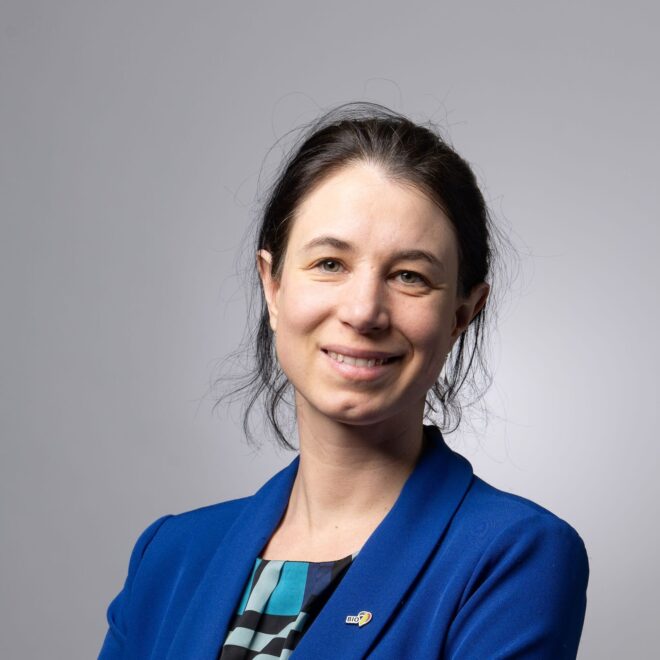
BIO is proud to support SMEs that are making a positive impact in emerging markets. We are a long-term partner for local businesses, bridging their financing gap and supporting them in their sustainability journey.
BIO's SME department helps these businesses by providing financial support tailored to their needs, such as capex financing and equity, to bridge financing gaps. Furthermore, through technical assistance programs, BIO partners with local institutions to address challenges such as governance, traceability and quality in agriculture or other environmental and social issues.

This brings the total number of approved investments in SMEs to 24, totalling EUR 78.8 M.
Total approved commitments on 31/12/2024

As part of the BDSF, BIO also approved 8 technical assistance projects, one due diligence, and support for an innovative MSME project, totalling EUR 148,866.


EA Foods is a great example of development cooperation partnership.
The company received support from the Belgian NGO Ondernemers voor Ondernemers shortly after they started, followed by an impact investment of Kampani before securing a USD 3.2 M investment of BIO.
We are proud partners of this company, which uses data and an impact-driven approach to create sustainable development in the Tanzanian agricultural value chain.
Sybile Vancoillie, Investment Officer

BIO has granted a USD 3.2 M loan to EA Foods Limited, a Tanzanian food aggregator and distribution company.
BIO has granted USD 14.000 of technical assistance to Electrical Controls and Switchgear, a manufacturer, supplier and service provider for transformers, switchboards, power distribution and control systems in Uganda.

BIO has granted EUR 6,906 of Technical Assistance to Gebana Burkina Faso, an agribusiness focused on the processing and marketing of organic and Fairtrade cashew nuts and dried mangoes.

BIO has granted EUR 15,828 of technical assistance to Gebana Burkina Faso, a company that processes and exports fairtrade and organic fruit and nuts.

BIO has granted USD 12.000 of technical assistance to Geuther Vietnam Co., Ltd., a Vietnamese company specialised in the production of wooden safety gates and other solid wood baby furniture.

BIO has granted USD 27,771 of Technical Assistance to Geuther Vietnam Co., Ltd., a Vietnamese company specialised in the production of wooden safety gates and other solid wood baby furniture.
BIO has granted a USD 9 M loan to Vivero Los Viñedos, a Peruvian plant nursery business

BIO has granted USD 22.000 of technical assistance to Yodawy, a healthcare software platform in Egypt
Financial institutions
BIO invests in financial institutions to build a stronger, more inclusive financial backbone for developing economies. We go beyond financial stability to support institutions that can withstand challenges such as climate change and create lasting positive impact. Our deep understanding of local contexts, coupled with our patient capital and commitment to sustainable development, makes DFIs like BIO uniquely suited to support these critical financial intermediaries. Our focus is on expanding access to finance for micro, small and medium-sized enterprises (MSMEs) through responsible microfinance, opening new markets and harnessing technological innovation. By strengthening these businesses, we foster entrepreneurship and unlock local economic growth.

This brings the total number of approved investments in financial institutions to 46, with a total value of EUR 391.5 million.
Total approved commitments on 31/12/2024

As part of the BDSF, BIO also approved 9 technical assistance projects for financial institutions, totalling EUR 377,428.


BIO has granted a EUR 13.6 million loan to BRAC International as part of a EUR 32.3 million debt financing round, alongside Ceniarth, Global Partnership, and Proparco.
"The informal economy is a significant sector in many developing economies. Microfinance provides an opportunity for individuals to grow sustainable small businesses and formalise their employment. With this investment, BRAC aims to support 240 beneficiaries."
Joris Totté, CEO BIO

BIO has granted a USD 20 M loan to Access Bank Plc, a Nigerian commercial bank.

BIO has granted EUR 73,135 of technical assistance to ACEP Group, a network of MFIs that is present in five African countries.

BIO has granted a USD 15 M loan to Banco Azul de El Salvador, a commercial bank in El Salvador.

BIO has granted a USD 20 M loan to Banco Guayaquil, an Ecuadorian universal bank.

BIO has signed a USD 15 M loan for Banco para la Comercialización y la Producción SA (BANCOP), a cooperative bank in Paraguay.

BIO has granted USD 35.9 K of technical assistance to Banco Solidario, an Ecuadorian microfinance institution.

BIO has granted USD 27.6 K of technical assistance to Banco Solidario, an Ecuadorian microfinance institution.

BIO has granted a USD 1.5 M loan to BRAC Sierra Leone, an international microfinance organisation active in Sierra Leone.

BIO has granted a USD 8.4 M loan to BRAC Tanzania, an international microfinance organisation active in Tanzania.

BIO has granted a USD 1.5 M loan to BRAC Liberia, an international microfinance organisation active in Liberia.

BIO has granted a USD 2.2 M loan to BRAC Uganda, an international microfinance organisation active in Uganda.

BIO has granted USD 18.000 of technical assistance to the EVN Finance Joint Stock Company, a deposit taking Non-banking Financial Institution in Vietnam.

BIO has granted a USD 10 M loan to EVN Finance Joint Stock Company, a deposit taking Non-banking Financial Institution in Vietnam

BIO has granted USD 18 K of technical assistance to Financiera Finexpar, a financial institution in Paraguay
BIO has granted a USD 20 M loan to Fundacion Génesis Empresarial, a Guatemalan microfinance institute.

BIO has granted USD 12.000 to Mesa de Finanzas Sostenibles, a non-profit organisation dedicated to the Paraguayan financial sector.

BIO has granted USD 56 K of technical assistance to MAA General Assurance Phils, a non-life insurance company in the Philippines.

BIO has granted a USD 15 M loan to Mutual Trust Bank, a commercial bank in Bangladesh.

BIO has granted EUR 201.930 of technical assistance to Sanasa Development Bank, a Sri Lankan licenced specialised bank.

BIO has granted a USD 10 M loan to TerraPay, a global digital payment company.
Infrastructure
Adequate access to essential infrastructure like energy, water, telecoms, waste management and transport is crucial for both the well-being of the population and sustainable economic growth in developing countries, which are facing a volatile global environment. Despite growing regulatory and political challenges, there are significant opportunities in renewable energy financing, driven by the growing demand for cleaner energy. The potential of smaller-scale independent power producers in Africa offers promising prospects.

By financing renewable energy projects, BIO aligns itself with global climate ambitions and supports improved access to electricity for businesses and communities. In addition, BIO is committed to improving access to water, waste management, e-mobility, as well as participating in digital transformation in emerging markets.
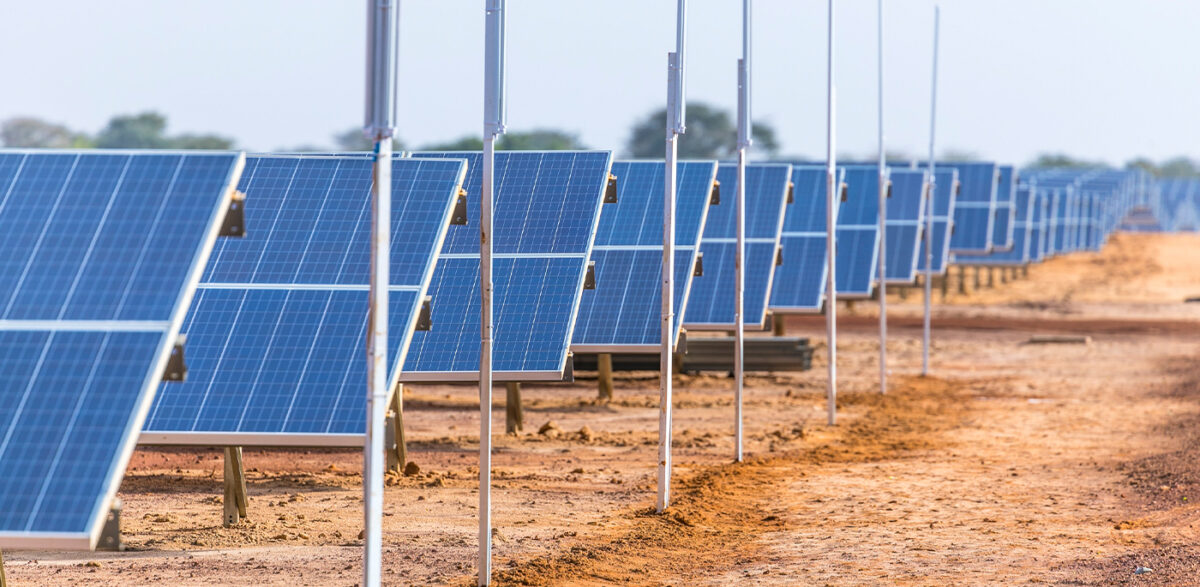
To navigate these challenges and meet the goals of the new management contract, BIO's Infrastructure department needs to use all its expertise, as well as actively seek co-financing partnerships with other DFIs to leverage resources and additional know-how. Streamlining internal processes for quicker project approvals is also key. Lastly, advocating for policy changes in partner countries that encourage more private sector involvement in renewable energy is essential for long-term, sustainable infrastructure development.

This brings the total number of approved infrastructure projects to 14, totalling EUR 131.1 M – with infrastructure funds accounting for an additional 12 projects, totalling EUR 96.8 M.
Total approved commitments on 31/12/2024

2024 investments in infrastructure

BIO has granted a USD 12 M loan to Achwa 1, a 42 MW run-of-river hydropower plant in Uganda.

BIO has granted a USD 9M loan to candi solar, a company installing, owning and operating solar production plants and selling electricity to clients in India and South Africa.
Investment companies & funds
Investing in funds is an important way for BIO to build a well-balanced portfolio, give entrepreneurs the long-term capital they need, support the financing system, and contribute to building a private equity ecosystem. This approach also supports the growth of strong, sustainable business models for the SMEs they back — a key driver of economic growth in developing countries.

Investing in private equity funds enables BIO reach more companies through a single investment, while tapping into the local know-how of experienced fund managers. It’s a smart way to support the goals set out in our management contract and to spread risk in tough investment environments.
Our investment in the Inside Equity Fund II, alongside the DGGF (Dutch Good Growth Fund), the U.S. International Development Finance Corporation, IFC, Norfund and Swedfund, is a good example. The objectives of this fund hit many of our key priorities:
- 100% focus on SMEs
- 100% focused on South East Africa
- 85% in least developed countries
- Clear climate and gender goals
- Sector focus on renewable energy, agri value chains, and waste management
BIO’s involvement is also catalytic, sending a strong signal to private investors and playing a crucial role in helping the fund reach its target size.
BIO is committed to playing a catalytic role in all of its investments, attracting private sector funding alongside its own. This collaborative approach is central to BIO’s mission, helping create broader, more sustainable impact and BIO’s goal of doing more with greater reach.

This brings the total number of approved investments in investment companies & funds to 69, totalling EUR 494.0 M.
Total approved commitments on 31/12/2024

As part of the BDSF, BIO also approved 2 technical assistance facilities for investment companies and funds, totalling EUR 735,000.


BIO has invested EUR 10 M in equity in the AfricInvest SME Fund, a private equity fund that will support fast-growing SMEs in North and sub-Saharan Africa.

BIO has granted EUR 350.000 of technical assistance to Afrigreen Debt Impact Fund, a private equity fund focused on solar renewable energy in sub-Saharan Africa.

BIO has committed USD 10 M in equity in the African Rivers Fund IV (ARF IV), a sector-agnostic investment fund focused on SMEs located mainly in the Democratic Republic of Congo, Uganda, Angola and Zambia.

BIO has invested USD 5 M in Inside Equity Fund II, a 10-year generalist SME fund focused on Southeast Africa.

BIO has invested USD 15 M in equity in the Navis Asia Credit Fund, a generalist private credit fund to be invested in Southeast Asia.

BIO has granted a USD 15 M loan to the Renewable Energy Performance Platform 2, a 20-year close ended debt fund focused on renewable energy.
Governance
The Board of Directors sets the strategic course for the company. To ensure well-rounded decision-making, they have expert committees by their side:
- The Investment Committee provides key advice on investment decisions.
- The Audit Committee keeps a close eye on the company’s finances, advising the Board on financial reporting, audits, and risk management.
- With a focus on people and policy, the HR Committee works with the Board to shape effective human resources strategies and foster a positive, productive workplace.
Composition and remuneration of the Board of Directors

Dirk Van der Maelen has been the government commissioner (ministry for development cooperation) as of 17 February 2021. Eddy Van Der Meersch has been the government commissioner (ministry for budget) as of 17 July 2021.
Heidy Rombouts, Director General Development Cooperation and Humanitarian Aid, attends the board meetings as representative of the DGD. Jean Van Wetter, CEO of Enabel, is also invited to board meetings as an observer.
Partnerships

International cooperation aims to create mutually beneficial partnerships that address global challenges such as peace, security, climate change, biodiversity, and health. These partnerships involve governments, civil society, the private sector, and multilateral organisations. Belgium seeks to use its development policy to tackle poverty, inequality, and instability, while promoting democracy and the rule of law. Cooperation through entities like BIO, Enabel, and NGOs will help strengthen local economies, social protection, and decent work. Belgium will also leverage the expertise of its private sector, particularly in areas like logistics, sustainable energy, and vaccine production, through the Global Gateway strategy. This collaboration aims to support Belgian businesses and maximise opportunities for both Belgium and its international partners.
Maxime Prévot, Deputy Prime Minister and Minister of Foreign Affairs, European Affairs and Development Cooperation

Alongside 11.11.11, Enabel, NGO-Federatie, CNCD-11.11.11, and Acodev, I supported the call for Belgium to keep investing in international cooperation, including private sector development.
Every day, countless Belgian organizations are putting development cooperation into action. They are focused on finding the most effective solutions, adapting to new needs, and learning from their experiences. Each one brings its own approach, knowledge, and expertise, which makes them all the more powerful in the fight against poverty and inequality.
Joris Totté, CEO BIO
The SDG Frontier Fund (SDG FF) is a Belgian investment vehicle focused on generating positive social and environmental impact alongside financial returns.
While the Belgian State is BIO's sole shareholder, the company recognises its accountability to a broader community. This includes Belgian taxpayers, civil society organisations, and fellow impact investors. BIO actively fosters collaboration with these stakeholders to maximise its impact on development goals.
Entrepreneurship creates sustainable economic growth and jobs. European Development Finance Institutions support entrepreneurs and enter markets where few others dare to tread, providing long-term financing at market-oriented rates.
In 2024, BIO experienced some important changes that set the stage for its next phase of growth and impact.
SDG Frontier Fund
Impact investing in developing economies
The SDG Frontier Fund (SDG FF) is a Belgian self-managed fund-of-funds (FoF) that invests in private equity funds active in Africa and Asia, with the objective of generating positive social and environmental impacts alongside financial returns. Established in December 2019 at BIO’s initiative, the fund has a total size of EUR 36 million, contributed by 14 Belgian institutional and private investors, including BIO.
Recent developments
In 2024, the SDG FF signed a USD 5 million investment in the Navis Asia Credit Fund, marking it as the twelfth and final investment, making the fund fully committed.
This private credit fund provides debt financing to underserved companies in Southeast Asia, with a 60% climate finance target. It's a great final addition to the SDG FF’s portfolio, helping to create a well-balanced exposure between Asia and Africa.
Meanwhile, the other 11 portfolio funds continued to deploy capital during the period, reaching 56% effective deployment into 124 SMEs—well above the initial target of indirectly supporting 100 SMEs.
Another significant achievement was that 2024 marked the first year SDG FF realized a positive net income, driven by some advantageous early exits at the level of its portfolio funds.

The goal of the SDG Frontier Fund is to generate an attractive financial return combined with a high development impact.
Investments of the SDG FF

The SDG Frontier Fund has committed EUR 3.2 M in equity in FIVE, an evergreen investment fund focusing on financial inclusion in Africa.

The SDG Frontier Fund has invested USD 1.7 M in equity in the African Rivers Fund III, an SME fund which invests in small and medium-sized enterprises in Central and Eastern Africa.

The SDG Frontier Fund has invested USD 2.3 M in equity in Ascent Rift Valley Fund II, an SME Fund targeting fast-growing SMEs in Eastern Africa. A follow-on investment of USD 1.7 M was made in June 2022, bringing the total commitment to USD 4 M.

The SDG Frontier Fund has invested EUR 4 M in Equity in the Cathay Africinvest Innovation Fund Ltd, a Pan African Venture Capital Fund.

The SDG Frontier Fund has invested USD 2.2 M in Excelsior Capital Vietnam Partners, a private equity fund focused on Vietnam.

The SDG Frontier Fund has invested USD 1.7 M in the Ezdehar Mid-Cap Fund II, a Private Equity Fund focused on Egypt.

The SDG Frontier Fund has invested EUR 2 M in equity in the Incofin India Progress Fund, a Financial Inclusion and Agribusiness Fund focused on India. A follow-on investment of EUR 1.5 M was signed in February 2023,
bringing the total commitment to EUR 3.5 M.

The SDG Frontier Fund has invested USD 5 M in equity in the Navis Asia Credit Fund, a generalist private credit fund to be invested in Southeast Asia.

The SDG Frontier Fund has invested USD 2,5 M in equity in the Omnivore Agritech & Climate Sustainability Fund III, an Indian VC fund specialized in the Agritech sector. A follow-on investment of USD 1 M was signed in October 2023, bringing the total commitment to USD 3.5 M.

The SDG Frontier Fund has invested USD 2.2 M in the South Asia Growth Fund II LP (SAGF II), a 10-year closed-end investment fund that will invest in energy efficiency and clean energy sectors.

The SDG Frontier Fund has invested USD 2.5 M in equity in the TIDE Africa II Fund, a venture capital fund focusing on technology-enabled services and innovation for Africa.

The SDG Frontier Fund has invested USD 2.5 M in equity in the Uhuru Growth Fund I, a PE fund focused on the Ecowas region
Team Europe
EDFI is the association of the 15 European bilateral development finance institutions. Its mission is to promote the joint interests of its members, inform policy and drive innovation in industry standards. It aims to foster cooperation amongst its members and strengthen their relationship with the institutions of the European Union. BIO has been a member of EDFI since 2002.

EDFI networking event
BIO was happy to host the Networking Event for the EDFI Development and Sustainability Working Group. Over a hundred of participants from all over Europe came together in the Royal Africa Museum to discuss development topics like climate change, decent work, gender, and human rights.

EDFI Management Company (EDFI MC), established in 2016, manages concessional funds on behalf and for member development finance institutions (DFIs).
To maximise EDFI MC’s chances to succeed in its European ambitions, to be recognised as an important partner by the European Commission, and to ensure a better integration of the MC into the shared goal of the European DFIs to be able to handle more difficult investments, it is key that more EDFI members are shareholders of the company.

BIO has increased its stake in the EDFI Management Company, which manages concessional funds on behalf of and for member development finance institutions (DFIs).
Team Belgium
Building strong partnerships for impact
While the Belgian State is BIO's sole shareholder, the company recognises its accountability to a broader community. This includes Belgian taxpayers, civil society organisations, and fellow impact investors. BIO actively fosters collaboration with these stakeholders to maximise its impact on development goals.

Diplomat training days
BIO had the pleasure of hosting 30 talented trainee diplomats from the Belgian ministry of Foreign Affairs to introduce them to the dynamic world of impact investing. They got an in-depth look into how BIO is driving positive social change through investments in private equity, microfinance institutions, SMEs and renewable energy.
Synergy within Belgian Development Cooperation
BIO collaborates closely with other key players in Belgian development cooperation, including the directorate-general for Development Cooperation and Humanitarian Aid (DGD), the Belgian development agency Enabel, and civil society organisations. For example, BIO has consulted with NGOs on the new investment strategy and change theory for agricultural value chains, as well as with the DGD and the external Special Evaluation Office in revising the theory of change, implementing the Strategic Impact Framework, and developing the evaluation plan.
BIO also participated in three working meetings of the Platform on Agriculture and Food Security (PLVZ), covering topics such as sustainable food systems and decent work, food systems in the context of COP (climate, biodiversity, desertification), and mechanisation and agrochemicals in food systems. Additionally, BIO served as an observer in the Gender and Development Advisory Council (ARGO/CCGD). In Senegal, BIO seconded an investment expert to Enabel's agricultural project, where the expert supported the development of an industrial zone (Agropole) in the Sine Saloum region.

Expanding the Impact Investing Landscape
IFB is a membership association focused on increasing the share of impact capital in Belgium, bringing together all capital providers committed to delivering measurable impact for people and the planet. The organisation welcomes all stakeholders in the impact finance ecosystem, including foundations, impact investors, and traditional financiers, as members. In 2024, BIO strengthened its commitment to Impact Finance Belgium (IFB) by becoming a full supporter. As such, BIO is actively involved in the Belgian Impact Week, for which it is organising the International Development Day, which will be held at the Maison de la Poste in November 2025.
BIO is proud to have partnered with the Belgian development agency Enabel on the Awa Prize, a groundbreaking initiative that championed women's entrepreneurship in Africa and the Middle East.
The 2024 competition honoured women entrepreneurs in the cultural and creative industries. A total of 1,313 women from 18 countries submitted their projects in four categories: start-up, scale-up, innovation, and public prize. At the end of the selection process, four winners were chosen.
The 2024 winners
Sonia Guiza – Start-up Winner – Côte d’Ivoire
Sonia Guiza’s company, Lagozi Entertainment, is taking African cinema beyond the big cities and beyond borders through theatre screenings, caravans in rural areas, distribution on television and Video on Demand platforms. The company is giving African cinema pride of place and provides a wide audience access to this important cultural component.
Janet Kabugho – ‘Scale-up’ winner – Uganda
Through craftwork, Janet Kabugho moved up from a modest background and emancipated herself. After studying in Kampala, she decided to help displaced people. This led her to establish the Skills Centrum Rwenzori, which trains rural women in weaving and handicrafts techniques.
Adja Soro – ‘Innovation’ Winner – Côte d’Ivoire
It is only one step from microfinance to animation. Adja Soro took that step and founded her own company, Studio Kä. Her production company designs and produces feature films and series that tell authentic and inspiring stories. They are distributed on television, on streaming platforms and in cinemas.
Aïcha Macky – ‘People’s Choice’ Winner – Niger
Even as a child, Aïcha Macky had a passion for acting and directing. As an adult, she turned her love of cinema into a profession and became a film director. She then decided to launch Tabou Production, to address sensitive topics. She broadcasts her reports in original locations such as schools, places of worship and bus terminals.

By supporting women entrepreneurs, the Awa Prize recognises their crucial role in achieving the Sustainable Development Goals. Women reinvest over 90% of their income back into their families and communities, creating a ripple effect of positive change.

Enabel and BIO have been working side by side for many years, but never took the time to put their collaboration on paper. In 2024, Enabel and BIO signed their first cooperation agreement, which formalises our existing partnership and explicitly aims to:
- Collaborate to foster ecosystem development through BIO’s instruments and Enabel's support for the surrounding system,
- Co-develop new climate finance initiatives,
- Create opportunities for BIO and Enabel colleagues to regularly exchange ideas, fostering synergies where possible and strengthening both organisations.
This agreement will help us continue to strengthen #TeamBelgium and the impact we can make globally.
Team BIO
In 2024, BIO experienced some important changes that set the stage for its next phase of growth and impact. The Executive Committee saw key leadership transitions. After the outstanding service of his predecessor, Luuk Zonneveld—who was honoured by His Majesty the King with the Order of the Crown for his contributions—Joris Totté took over as CEO, bringing his expertise and vision to lead BIO forward. At the same time, Tine Vlietinck stepped into the role of Chief Corporate Officer, with a focus on shaping BIO's strategy and growth. The search for a new Chief Financial Officer began in 2024 and was successfully completed with the appointment of Rebecca Scheps in early 2025, strengthening BIO's financial leadership.
There were also changes in BIO's liaison offices, which are key to engaging locally and building partnerships. In the East Africa Office, Alexis Losseau handed over the reins to Nada Shall, who will continue to receive valuable support from Pearl Nyaosi to maintain BIO's strong relationships in the region. In Abidjan, Maximilien d'Harcourt passed the baton to Gilles Dossogne, who will be supported by Dorian Zohou to keep BIO’s presence strong in West Africa.
Another notable change took place within the SDG Frontier Fund (SDG FF), one of BIO's key investment tools. Eric Van den Bosch, who was instrumental in establishing the fund, was succeeded by Maximilien d'Harcourt, who will now lead the fund into its next phase.
Colophon
The Belgian Investment Company for Developing Countries, BIO, is a development finance institution established in 2001 by the Belgian development cooperation to support private sector growth in Africa, Asia & Latin America. BIO provides long-term financing to enterprises, the financial sector, and private infrastructure projects, as well as grants for feasibility studies and technical assistance programmes. BIO invests in projects targeting both high and sustainable development impact, and a modest financial return. BIO is a member of EDFI.
Responsible publisher
Joris Totté, CEO BIO nv/sa
Boulevard Bischoffsheimlaan 15
1000 Brussels, Belgium
Content
BIO and its investees
Concept & editing
Tom De Latte, supported by Gemini.
Layout & graphic design
Tom De Latte
Translation
Evi Vanhooren and the translation department of Enabel
Pictures
Copyright with BIO and its investees

